How can Open Educational Resources Promote Inclusive Education?
date:2020-08-24 20:34author:小编source:Smart Learning Instituteviews:
On the evening of August 21, 2020, the 2020 Global Smart Education Conference “Open Educational Resources and Inclusive Learning Forum” was held at Beijing Normal University. The conference invited experts and scholars from many countries and representatives of international organizations to conduct in-depth discussions on the policies and practices, opportunities and challenges of using Open Educational Resources (OER) to promote inclusive education.
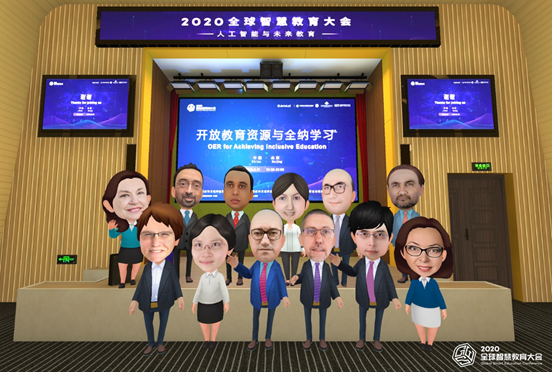
Group photo of open educational resources and inclusive learning AI virtual venue experts
The forum was jointly organized by the UNESCO Institute for Educational Information Technology (UNESCO IITE), the UNESCO International Rural Education Research and Training Center (UNESCO INRULED) and the Arab League Education, Culture and Science Organization (ALECSO) and it was live broadcast to the world via the Internet. The forum first tried to use 3D virtual venue technology. The cute and lovely image of experts and the dynamic effect synchronized with the live broadcast brought a brand new online meeting experience to the audience.
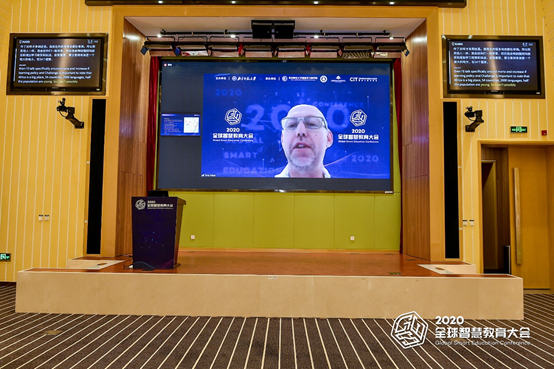
Dr. Tony Mays, Distinguished Education Expert of the Commonwealth Learning Community (COL)
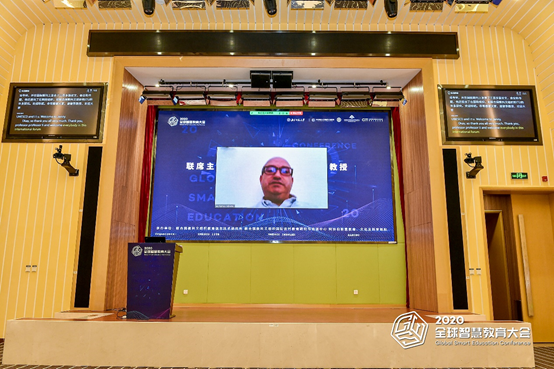
Professor Mohamed Jemni, Director of the ICT Section of the Arab League Education, Culture and Science Organization (ALECSO)

Professor Mohamed Jemni, Director of the ICT Section of the Arab League Education, Culture and Science Organization (ALECSO)
In his speech, Dr. Tony Mays, a distinguished education expert of the Commonwealth Learning Community (COL), introduced the practice of COL in promoting inclusive learning in recent years. He believed that distance learning models and open educational resources that supported autonomous learning could help create learning opportunities for those who could not access physical campuses, especially to provide assistance to girls, women, and the disabled in underdeveloped areas. Professor Mohamed Jemni, director of the ICT section of the Arab League Education, Culture and Science Organization (ALECSO), said in his speech that ALECSO had always been committed to managing and coordinating related projects in the fields of education, culture, science and information technology, upholding tolerance, moderation, respect for others, promote diversified development and other values, and further develop inclusive education through OER.
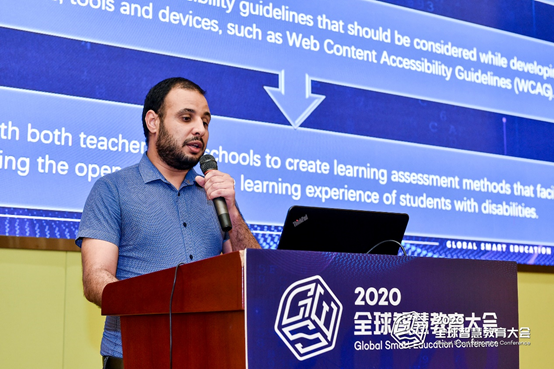
Dr. Ahmed Tlili, Co-Director of OER Laboratory, Institute of Smart Learning, Beijing Normal University
Dr. Ahmed Tlili, co-director of the OER Laboratory of the Institute of Smart Learning, Beijing Normal University, released the “Guidance on Providing Open and Distance Learning for Students with Disabilities during School Closures: Enhancing Inclusive Learning under COVID-19”. The manual was compiled by a team led by Professor Huang Ronghuai, Co-Dean of the Institute of Smart Learning, Beijing Normal University, Director of the National Engineering Laboratory of Intelligent Technology and Application of Internet Education, and Liu Dejian, Co-Dean of the Institute of Smart Learning, Beijing Normal University. The handbook starts with the various obstacles faced by students with disabilities in using computers to learn during COVID-19. It aims to help students with hearing impairment, visual impairment, and physical movement impairments use computers, smartphones, and digital learning resources to conduct online learning. Various coping strategies have been proposed from the perspectives of support, resource design, and parental support.
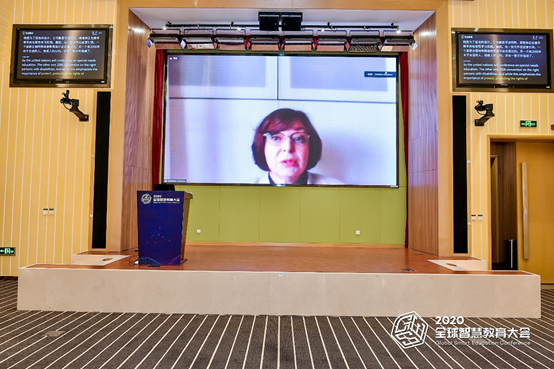
UNESCOIITE expert Dr. Svetlana Knyazeva
Dr. Svetlana Knyazeva, Director of the Digital Teaching and Learning Materials Department of UNESCO IITE, shared UNESCO IITE's policies and practical experience in promoting the application of OER in non-English speaking countries, and introduced the free online courses jointly launched by UNESCO IITE and the World Wide Web Consortium (W3C). She pointed out that inclusive education must consider not only learners with physical disabilities, but also different age groups, ethnic minorities, learners of minority languages, learners from marginalized and low-income families, as well as displaced and disadvantaged groups.
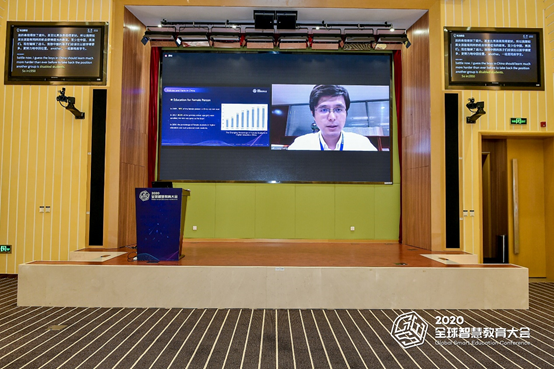
Dr. Cheng Gang, Associate Professor and Minister of Learning Resources Department of the Open University of China
Dr. Cheng Gang, Associate Professor of the Open University of China and Minister of Learning Resources, shared China’s policies and practices in promoting inclusive education, including the nine-year compulsory education policy, the education policy for disabled students, girls’ education, three links and two platforms and other ICT infrastructure, national platform of public resources for education service, MOOC of Chinese universities and other OER projects. He also introduced the work of the National Open University in promoting inclusive education, including providing learning resources for the Ministry of Education's “One Village One University Student Program”, and providing appropriate learning resources such as sign language or audio for disabled students from the Open University, launching the “Wonderful Life – Women’s Lifelong Learning Program” and so on. He pointed out that OER was still facing challenges in the promotion of inclusive education, such as the intensification of the digital divide, the sustainable development of capital and human resources. The rapid development of 5G and AI technologies and the continuous improvement of online learning communities would bring more opportunities to OER to promote inclusive education.
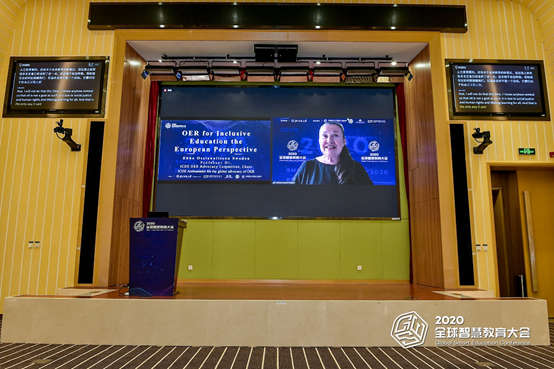
Professor Ebba Ossiannilsson, Vice Chairman of the Swedish Distance Education Association, Chairman of the ICDE OER Initiative Committee, and ICDE OER Global Promotion Ambassador
Professor Ebba Ossiannilsson, Vice-Chairman of the Swedish Distance Education Association, Chairman of the ICDE OER Initiative Committee, and ICDE OER Global Promotion Ambassador, shared European countries’ policies and initiatives to promote open educational resources, and introduced the “Learning for All: Guidelines on the Inclusion of Learner with Disabilities in Open and Distance Learning” and the “European Disability Strategy 2010-2020” issued by the European Commission. She pointed out that the promotion of inclusive education through OER still had problems in policyies, funding, ecosystem construction and capacity building. All measures to promote inclusive education through OER should be guided by UNESCO OER proposal and be monitored and evaluated properly.
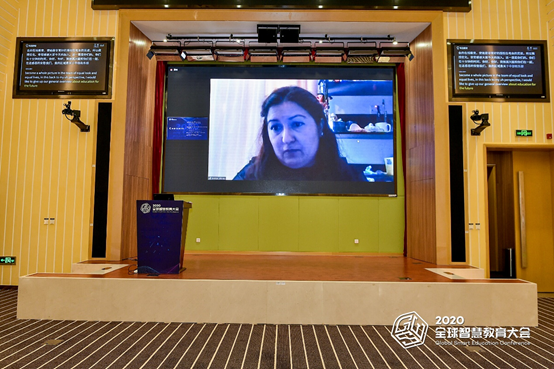
Professor Fahriye Altinay, Dean of the Graduate School of Educational Sciences, Near East University, Cyprus
Professor Fahriye Altinay, Dean of the Graduate School of Educational Sciences, Near East University, Cyprus, shared the policies of Cyprus, Germany, Poland and other eight Central and Eastern European countries in using OER to promote inclusive education. She introduced the practice of higher education institutions in using OER to promote inclusive education with the cases of Near East University. She believed that the current OER practice lacked a full understanding of inclusive education and it lacked innovative methods, strategic plans and human resource to guarantee equal participation. Furthermore, there were still cultural and regional biases in OER practice. She proposed that regular training should be strengthened to help teachers master the knowledge and strategies of open teaching methods.
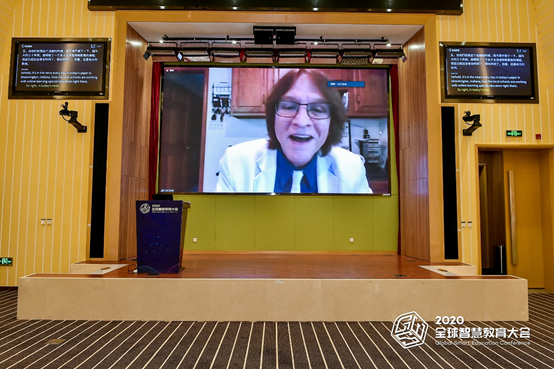
Dr. Curtis J. Bonk, Professor, Department of Instructional System Technology, School of Education, Indiana University, USA
Dr. Curtis J. Bonk, a professor in the Department of Instructional System Technology, Indiana University School of Education, introduced the practices of North American and countries in southern hemisphere in using OER and MOOCs to promote inclusive education, and put forward four suggestions for promoting inclusive classrooms, including providing diversified guidance, reducing expensive course materials, providing students with alternative tasks under special circumstances, and fully understanding students’ technical preferences and special needs. He pointed out that with the development of AI technology, learning would become opener, freer, and more inclusive. He believed that OER and MOOCs had great potential in promoting the realization of inclusive education.
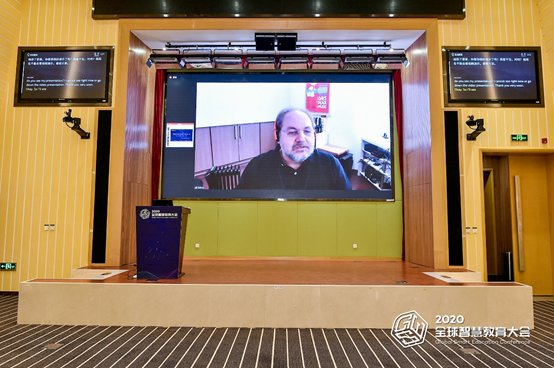
Professor Edison Spina, Department of Computer Engineering and Digital Systems, University of Sao Paulo (EP-USP), Brazil
Professor Edison Spina from the Department of Computer Engineering and Digital Systems of the University of São Paulo (EP-USP) introduced the legal norms, standards and policies of Brazil and other Latin American countries in their use of Open Educational Resources (OER) to promote inclusive education from the perspective of socio-technical systems. He pointed out that building a social education ecosystem required raising the awareness of OER and inclusive education, opening professional training courses that promote inclusive education through OER, promoting multi-party collaboration and sharing of practical experience, providing policy and financial incentives, and building good infrastructure and technical support service team, etc. Technology is still the major challenge faced by the promotion of inclusive education through OER.
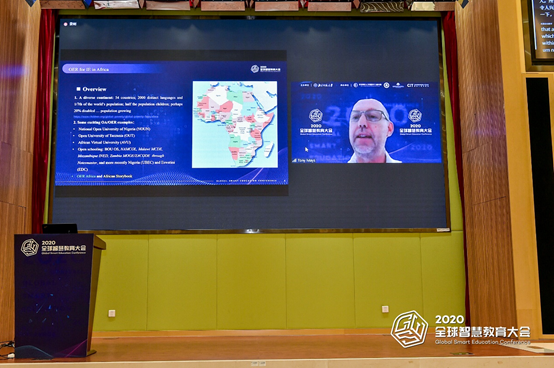
Dr. Tony Mays, Distinguished Education Expert of the Commonwealth Learning Community
Dr. Tony Mays, Distinguished Education Specialist of Open Schooling from the Commonwealth of Learning, introduced the OER project of the National Open University of Nigeria, the Open University of Tanzania, the African Virtual University, and the “Open schooling project” of Africa. He believed that the foundation design of ICT and systematic investment were still the main challenges faced by OER’s applications.
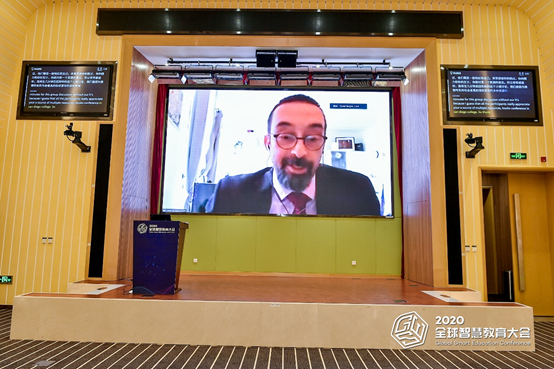
Professor Daniel Burgos, Chairperson of UNESCO Digital Teaching, Chairperson of the International Council for Distance Education (ICDE), Director of the Institute of Educational Innovation and Technology (UNIR iTED)
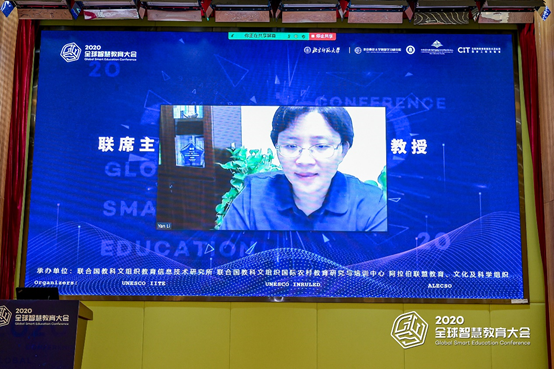
Professor Li Yan, Director of the Intelligent Education Research Center of Zhejiang University
This forum was co-hosted by Professor Daniel Burgos, Chair of UNESCO Digital Teaching, Chair of International Council for Distance Education (ICDE), Director of Institute of Education Innovation and Technology (UNIR iTED), Professor Li Yan, Director of Intelligent Education Research Center of Zhejiang University, Dr. Ahmed Tlili, Co-Chair of the OER Laboratory of the Smart Learning Institute of Beijing Normal University.
Identify the QR code and watch all conference videos
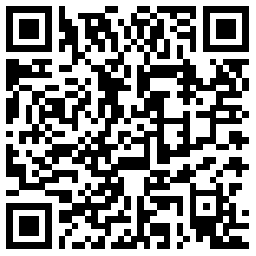
2020 Global Smart Education Conference Official Website
http://gse.bnu.edu.cn/

2020 Global Smart Education Conference Official Website
http://gse.bnu.edu.cn/

